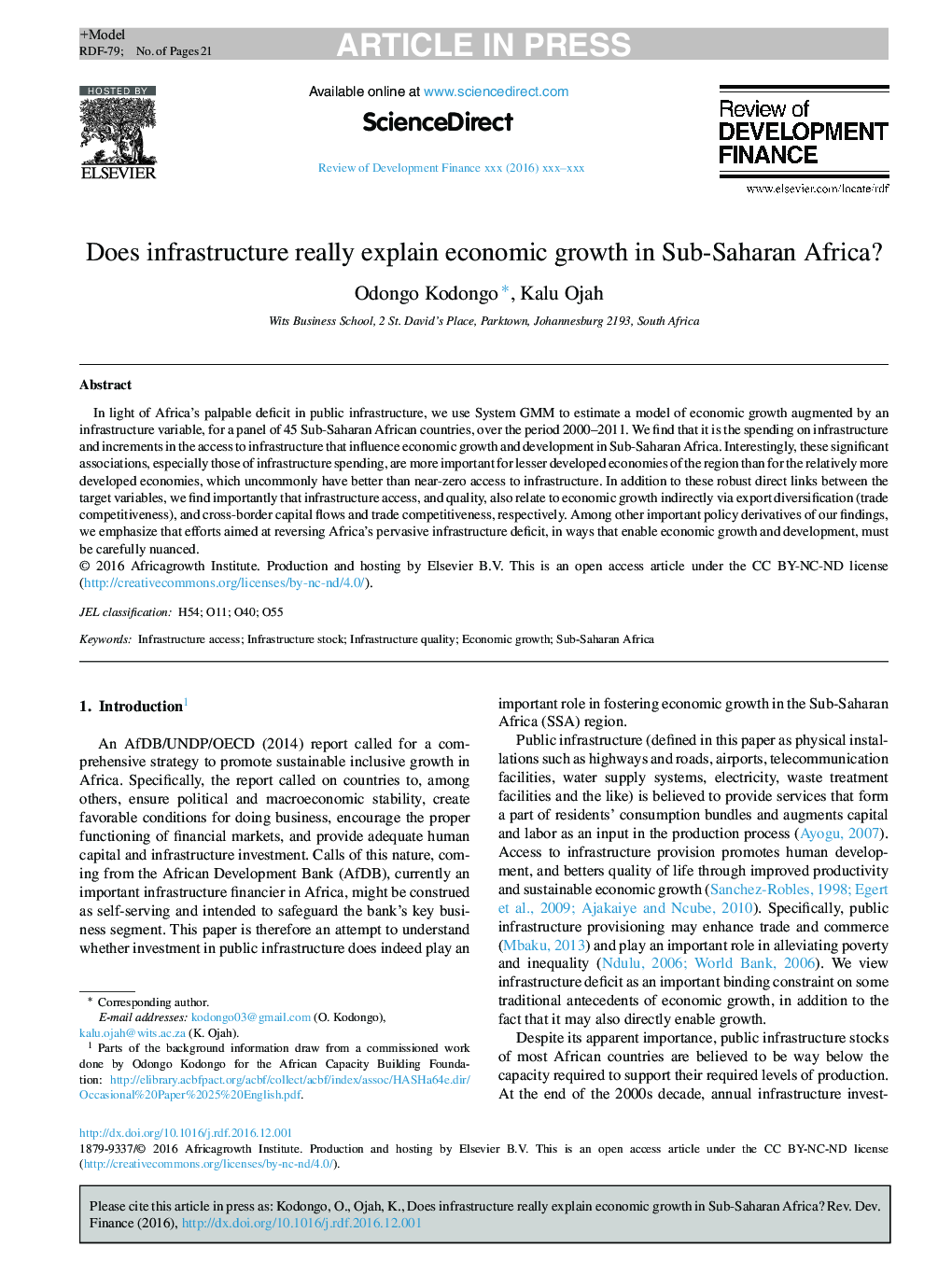| Article ID | Journal | Published Year | Pages | File Type |
|---|---|---|---|---|
| 5104291 | Review of Development Finance | 2016 | 21 Pages |
Abstract
In light of Africa's palpable deficit in public infrastructure, we use System GMM to estimate a model of economic growth augmented by an infrastructure variable, for a panel of 45 Sub-Saharan African countries, over the period 2000-2011. We find that it is the spending on infrastructure and increments in the access to infrastructure that influence economic growth and development in Sub-Saharan Africa. Interestingly, these significant associations, especially those of infrastructure spending, are more important for lesser developed economies of the region than for the relatively more developed economies, which uncommonly have better than near-zero access to infrastructure. In addition to these robust direct links between the target variables, we find importantly that infrastructure access, and quality, also relate to economic growth indirectly via export diversification (trade competitiveness), and cross-border capital flows and trade competitiveness, respectively. Among other important policy derivatives of our findings, we emphasize that efforts aimed at reversing Africa's pervasive infrastructure deficit, in ways that enable economic growth and development, must be carefully nuanced.
Related Topics
Social Sciences and Humanities
Economics, Econometrics and Finance
Economics and Econometrics
Authors
Odongo Kodongo, Kalu Ojah,
